
During their three year and eight-month PhD students receive world class training in multi-stressor science and wetland ecology in a mix of in-person cohort-building events and online training. The training is enriched through the active involvement of our associated partners, who contribute to the design and delivery of the programme, organise challenge events, and offer secondments and internships. This provides students with valuable real world experience in addressing environmental problems and working in a professional environment.
Research Projects
ECOWILD students will work on a challenging research project aligned with one or more of the five priority research areas identified through horizon scanning exercises and in collaboration with our stakeholders. All projects will include consideration of more than one environmental stressor through empirical investigations or from a restoration or governance/management perspective.
Heriot Watt University
This PhD project will address this research gap by collecting, analysing and interpreting field-sampled and -monitored water quantity and quality parameters to determine multi-benefit, holistic system performance, and link this into wider biodiversity assessments of urban wetland systems. This will be combined with citizen science methodologies to underpin hydroclimatic understandings of GI ‘performance’.
PhD Student – Elise Cheng

“My PhD research relates to the need for flood mitigation in urban cities using Nature-based Solutions and Green Infrastructure. I will be focusing on analysing rain garden behaviour during extreme flood events through constructing a portable rainfall simulator. Flooding impacts infrastructure, society and ecosystems more so in a negative manner, by restoring or replicating natural environments will have the goal of slowing the flow of water movements and reducing the severity of pluvial flooding. My overarching aim is as follows: Investigating the behaviour and placement of SuDS in the central belt of Scotland through conducting in-situ field testing and desk studies. Following this aim covers the areas of knowledge gaps in current literature and contribute to the ongoing research that holds a high impact in urban cities.”
The supervisory team comprise expertise across multiple stressor science, ecotoxicology, analytics and water policy. This scientific topic is extremely important for protecting biodiversity and is a dynamic and rapidly advancing area of study.
PhD Student – Doyinsola Suliat Mustapha
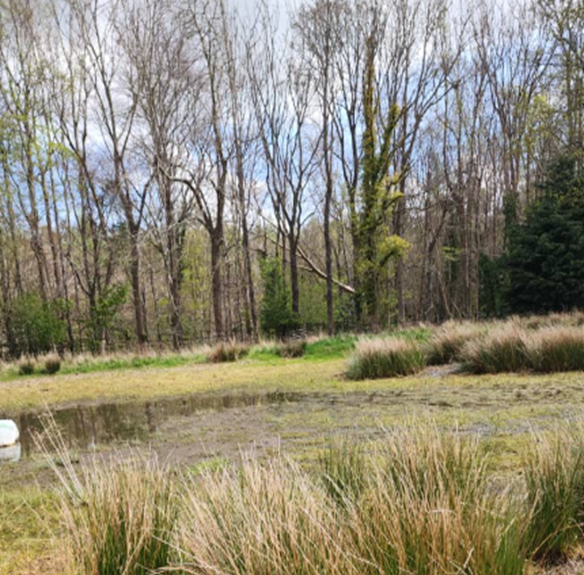
“Hey there! I’m Doyin, and I’m excited to be part of the ECOWILD CDT programme. I’m based in HWU and my PhD is looking at how combinations of environmental stressors impact freshwater snails living in mini-wetlands. These ecosystems, though small, support exceptional biodiversity but are increasingly threatened by human activities. Through a combination of fieldwork, laboratory experiments, and analytical techniques, my project aims to understand how multiple stressors interact and what this means for the health, survival, and conservation of freshwater wetland species.”
Alex Braggins is a PhD researcher at Heriot Watt University, supervised by Dr Leo Peskett. His research, part of the ECOWILD project, investigates how land use and climate pressures on upland wetlands and floodplains influence their ability to mitigate floods and droughts. By combining field hydrology, water tracer techniques, and modelling, his work aims to advance understanding of how these landscapes store and release water under change.
PhD Student – Alex Braggins

PhD Student – Andrew Joseph
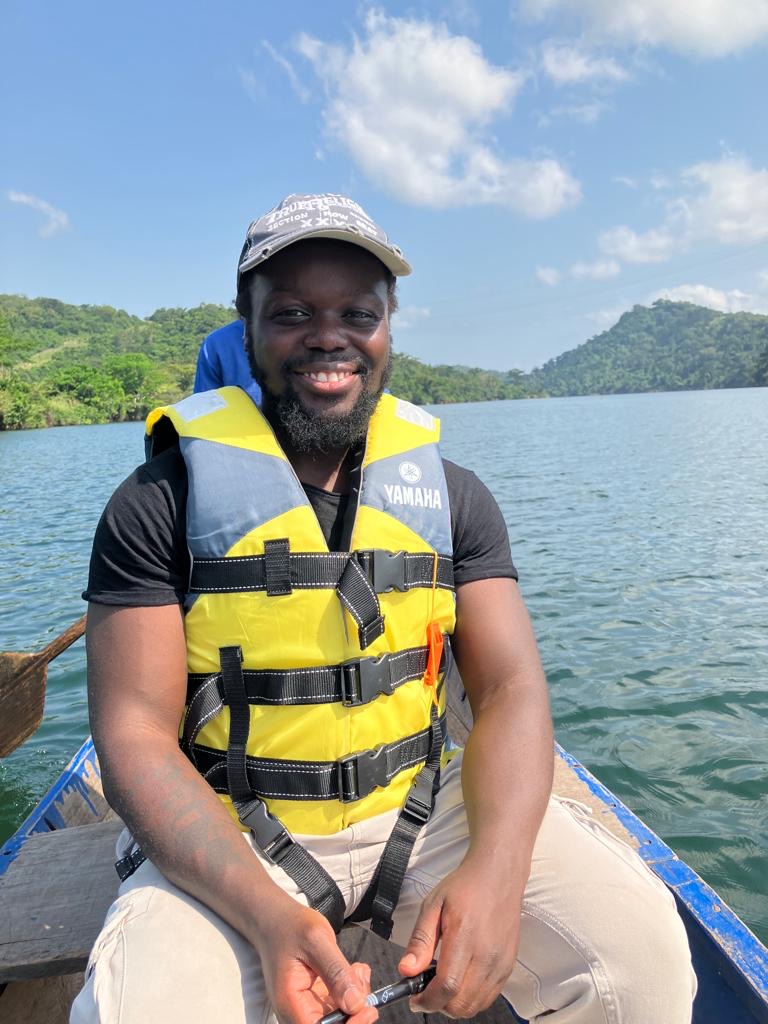
Andrew Joseph is an Aquatic Animal Health Scientist with eight years of professional experience at the Centre for Environment, Fisheries and Aquaculture Science (Cefas). He has joined the ECOWILD Centre for Doctoral Training to investigate the impacts of multiple environmental stressors on UK amphibian species and their ecological implications. His research integrates ecotoxicological mechanisms with community-level responses and ecosystem dynamics to better understand the real-world effects of anthropogenic pressures on amphibian populations.
PhD Student – Ruth Flynn

“My fascination for seagrass ecology led me to return to university to study Marine Biology, and I am now pursuing a PhD investigating how environmental stressors affect seagrass germination and survival. My research aims to inform and enhance restoration practices, supporting more effective restoration strategies that strengthen the resilience of our coastal ecosystems.”
PhD Student – Georgina Chow

“My PhD project will be looking at pollution and climate change in the context of mangrove forests, where I will be using a model amphipod (Parhayle hawaiensis) in the lab and in the field to study how these factors affect the organism at a molecular and behavioural level. This will help us to understand how community level processes, interactions and functions are impacted, and ultimately how we can better protect these important mangrove ecosystems.”
PhD Student – Andrew Tucker

“Hi, my name is Andrew Tucker. I am 41 years old and have an 8-year-old daughter. I have recently completed an MSc in Land & Ecological Restoration at the Eden Project learning centre, which is part of Cornwall College and Plymouth University. My dissertation here focused on hedge heights and their impacts on surrounding soil qualities, which involved landscape spatial analysis, soil sampling, and soil quality evaluation at different distances from the hedge (moisture content, soil organic carbon content, microbial hydrolysis activity, glomalin-related soil proteins). Previously, I completed an integrated Master of Engineering (Materials & Design) at The Open University, where I was particularly interested in modelling and simulation. I have always been interested in sustainability, particularly in agricultural systems, where there is a need for increased output at reduced costs. During both of my postgraduate studies, I have been fortunate to run my own gift shop business in Dawlish, Devon. These experiences have helped me gain a wealth of knowledge that I can apply to my PhD project on Agricultural Ditch Networks for Flood and Pollution Management.”
University of Highlands & Islands
PhD Student – Charlotte Wilson
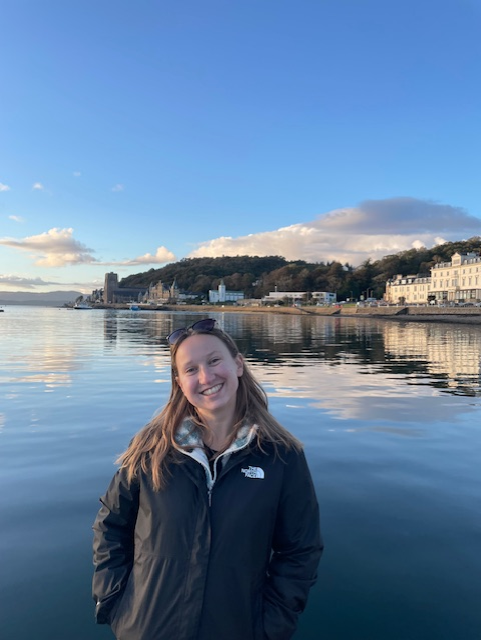
“I have a background in Marine Biology and during a 2023 research expedition to Christmas Island, Indian Ocean, I became fascinated by the biology of land crabs, particularly their resilience during their early life stages. I also have a strong interest in using multidisciplinary techniques to explore stress responses at different levels of biological organisation. My project will utilise molecular approaches (e.g. DNA damage, gene expression) and embryophenomics in lab and field experiments to understand how land crab species cope with climate and pollutant stressors during a period of their life history which is crucial for long term survival and recruitment of the population.”
PhD Student – Lucy Mortlock
The supervisory team of this project is comprised by UHI and University of York academics with expertise in atmospheric pollution science, and landscape-scale peatland and eDNA monitoring, in collaboration with private (SSE) and public (Forestry Land Scotland) stakeholders, and is well equipped to support the student’s development and project.
PhD Student – Beccy Middleton
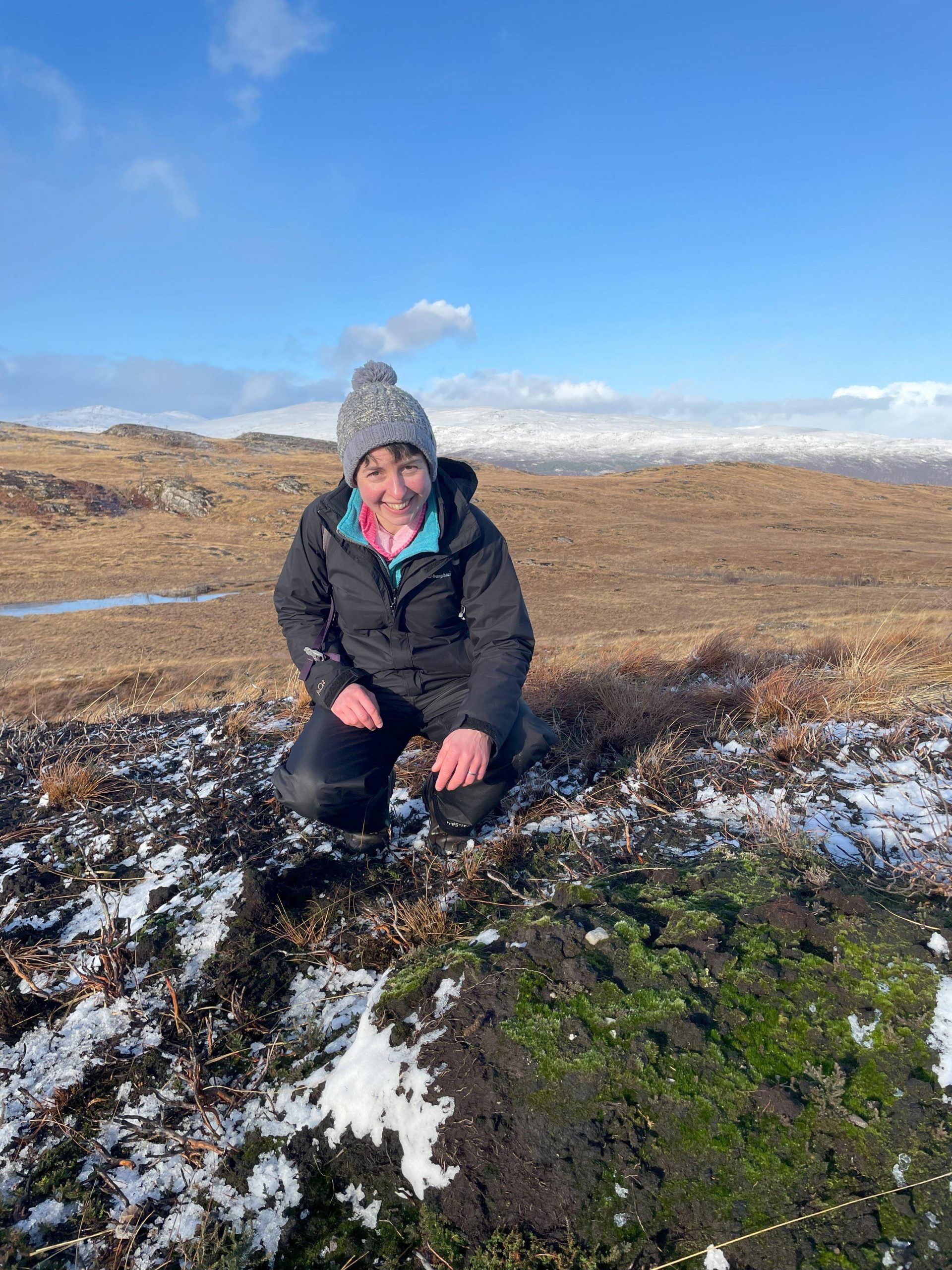
“I am really interested in how insights from community ecology can help us to refine and improve ecological restoration outcomes. Although my background is in plant ecology and botany, this project focuses on the tiny organisms in peatland habitats which have an enormous impact on ecosystem functioning – bacteria, fungi and micro-eukaryotes (or protists). Protists are astonishingly diverse but have received less attention in the past than other microbes. A better understanding of how these groups respond to disturbances such as wildfires and bog restoration will help us look after our precious peatland habitats”
PhD Student – Megan Boffin

“I have a background in wildlife conservation and a strong interest in the ecology and conservation of data-poor and elusive mammal species. During my MRes in Biosciences (awarded 2025), I explored the reintroduction of pine martens from Scotland to southern England, using genetic techniques and population modelling to inform management decisions. My PhD builds on this work by investigating how beaver presence in Scotland, alongside environmental stressors, affect mammal populations and wider ecosystem health. By combining genetic and ecological approaches, my research aims to understand how species respond to changing environments and to support more effective, evidence-based conservation strategies.”
Scottish Association for Marine Science
PhD Student – Nele Thomsen
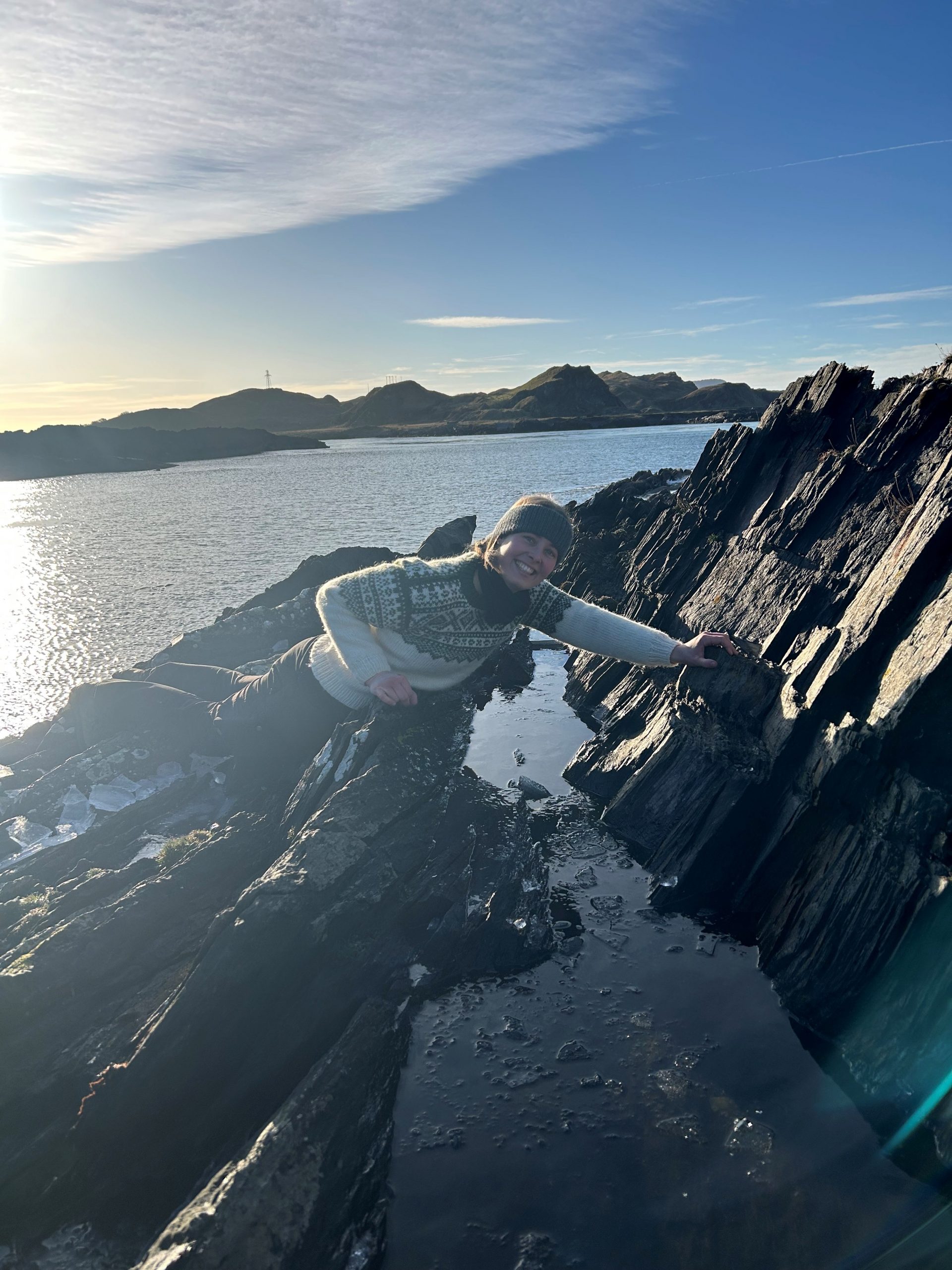
“My interests are in extreme environments, biological adaptations, and ecotoxicology. I am particularly fascinated by copepods and how they deal with climate change related stress in a complex environment. I apply multilevel analysis methods to understand how these organisms will cope on a genetic and wider biological level in future climate conditions. For my PhD project, our main goals are to assess general sensitivities of the rockpool copepod Tigriopus brevicornis to common environmental stressors in a multistress scenario, understand the underlying mechanisms that might improve their resilience, and investigate the transgenerational impact of selected multistressors on the genome, genetic functioning, and general fitness of T. brevicornis.”
University of York
UK floodplains are crucial for healthy riverine ecosystems, but their functionality has been degraded by channel manipulation, agricultural use and pollution. Climate change may additionally affect floodplain performance through changes in flooding dynamics and conditions (e.g. more frequent summer floods), but this is less well studied. As these multiple stressors will occur simultaneously, we also urgently need to know their combined impacts. UK floodplains have been under pressure from human activity and can be hotspots for pollutant input through contaminated sediment deposition. Simultaneously, floodplain functions may also be affected by climate change.
This cutting-edge study will therefore provide critical evidence on how these multiple stressors, single and in combination, will impact pollutant and sediment retention, carbon storage, greenhouse gas emissions and biodiversity in floodplains to inform management, restoration and climate change mitigation.
PhD Student – Mahmuda Islam

“My PhD project involves understanding the impacts of flooding and potentially toxic elements on soil biogeochemical cycling, including greenhouse gas cycling. Soil microbes play a crucial role in greenhouse gas cycling. I am interested in applying an interdisciplinary approach that merges soil microbial ecology with redox chemistry to explore how microbes adapt or respond to multiple stressors (e.g., chemical pollution and flooding) and how these interactions ultimately influence greenhouse gas dynamics. I hope the findings of this study will contribute to the strategies to mitigate climate change and restore floodplains.”
This project will work alongside conservation bodies to understand how we can quantify biodiversity and functioning in these ecosystems, and work at a unique new lagg habitat management project in South Cumbria to develop new tools to manage wet woodlands. The project team is supervised by experienced field ecologists with a track-record in wetland and woodland ecosystem science, as well as the wider team including conservation evidence and practice officers and regional managers.
PhD Student – Lucy Stewart
The student will complete fieldwork in Cambodia in collaboration with the WWT Cambodian team, the Cambodian Development Resource Institute and other partners in Cambodia. A mixed-method and multidisciplinary approach, combining qualitative and quantitative methods, will be used to gather and map information. The student will develop expertise and skills in ecological quality analysis, wetland ecology, GIS and modelling environmental change, statistical analysis, sustainable development, social sciences methodologies eg. interviews, content and policy analysis. Dr Julia Newth and WWT colleagues will lead project development and Cambodian fieldwork. At University of York, the student will be supervised by Professor Kathryn Arnold (biodiversity conservation), Dr Richard Friend (water resource management, hydropower, fisheries and local livelihoods in the Mekong region) and at UHI Dr Elizabeth Marsden (spatial analysis).
The student will also gain experience in the design and implementation of biodiversity monitoring and experiments in natural settings to disentangle multiple biodiversity stressors. Additionally, they will develop valuable and transferable skills in cutting-edge molecular methods like DNA metabarcoding and bioinformatic and statistical analysis. The student will also engage with measurements and modelling of peatland emissions and develop a holistic understanding of the peatland biodiversity and functioning.
PhD Student – Christopher Middleton

“Over the course of my PhD I hope to work collaboratively with local stakeholders to create a sustainable, just, and bright future for the wetlands of the Mekong Delta and the people and wildlife that call it home.”
PhD Student – Toby Popple

“My PhD, based at the University of York, investigates how different combinations of environmental and chemical stressors affect both wetland communities and individuals. Understanding how these environmental stressors may influence the fate and toxicity of chemical pollutants is essential for improving climate resilience. Using a range of fieldwork, laboratory experiments, and modelling techniques in collaboration with Reckitt, this project aims to strengthen current and future ecological risk assessments to better protect vulnerable wetland ecosystems.”
PhD Student – Liam Paulson
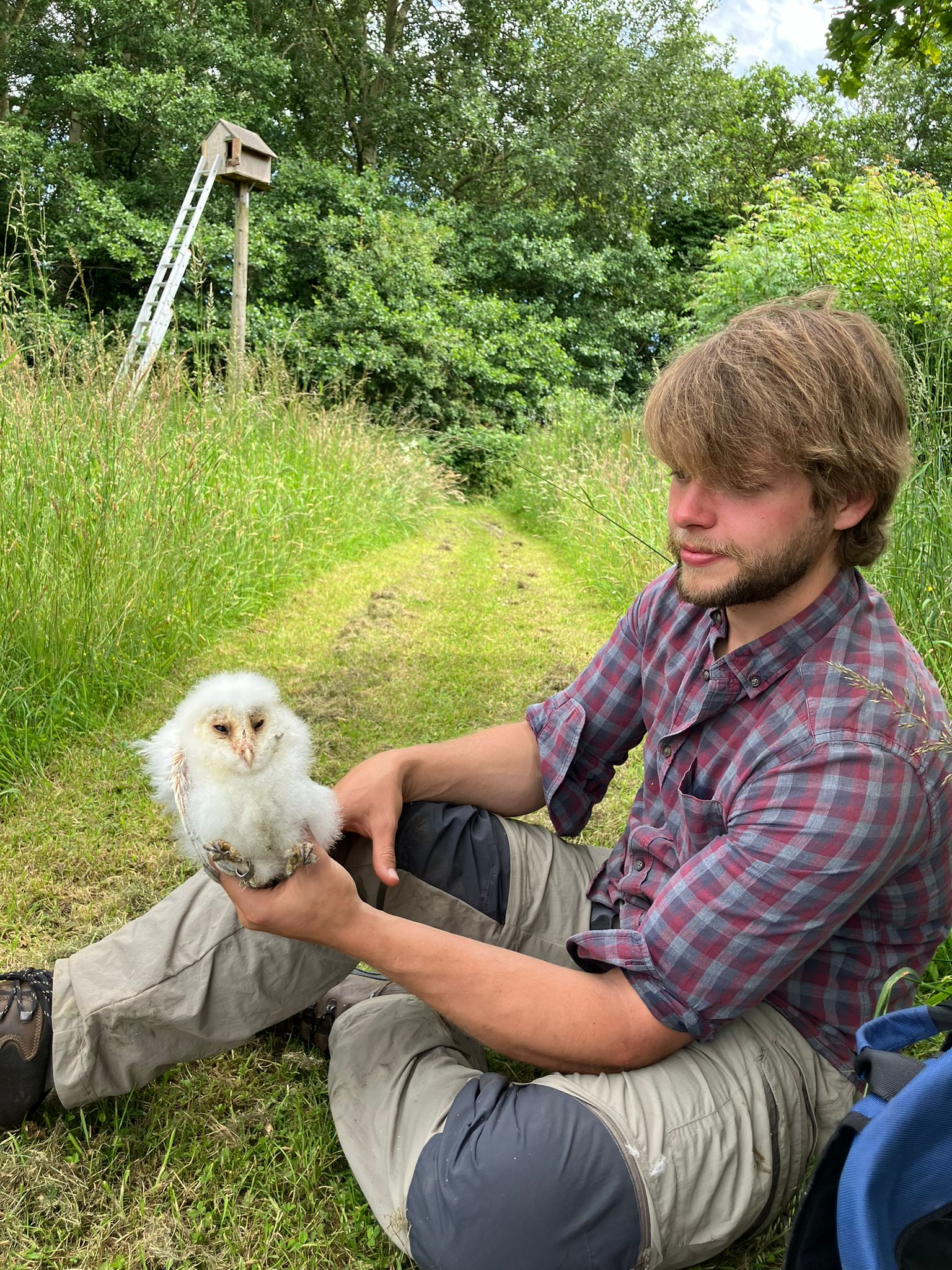
“Hello! I’m Liam, based at the University of York. My interests are in active conservation outcomes, wetland environments and most importantly, birds! My PhD project involves understanding the stressors impacting breeding waders on the Outer Hebrides, a nationally incredibly important site for a number of species. I hope to combine field data, spatial imagery and historical trends to unpick the drivers of these stressors and potentially through this work contribute to the strategies and policies aimed at improving outcomes for these birds.”
University of Oxford
PhD Student – Isabel Quinn
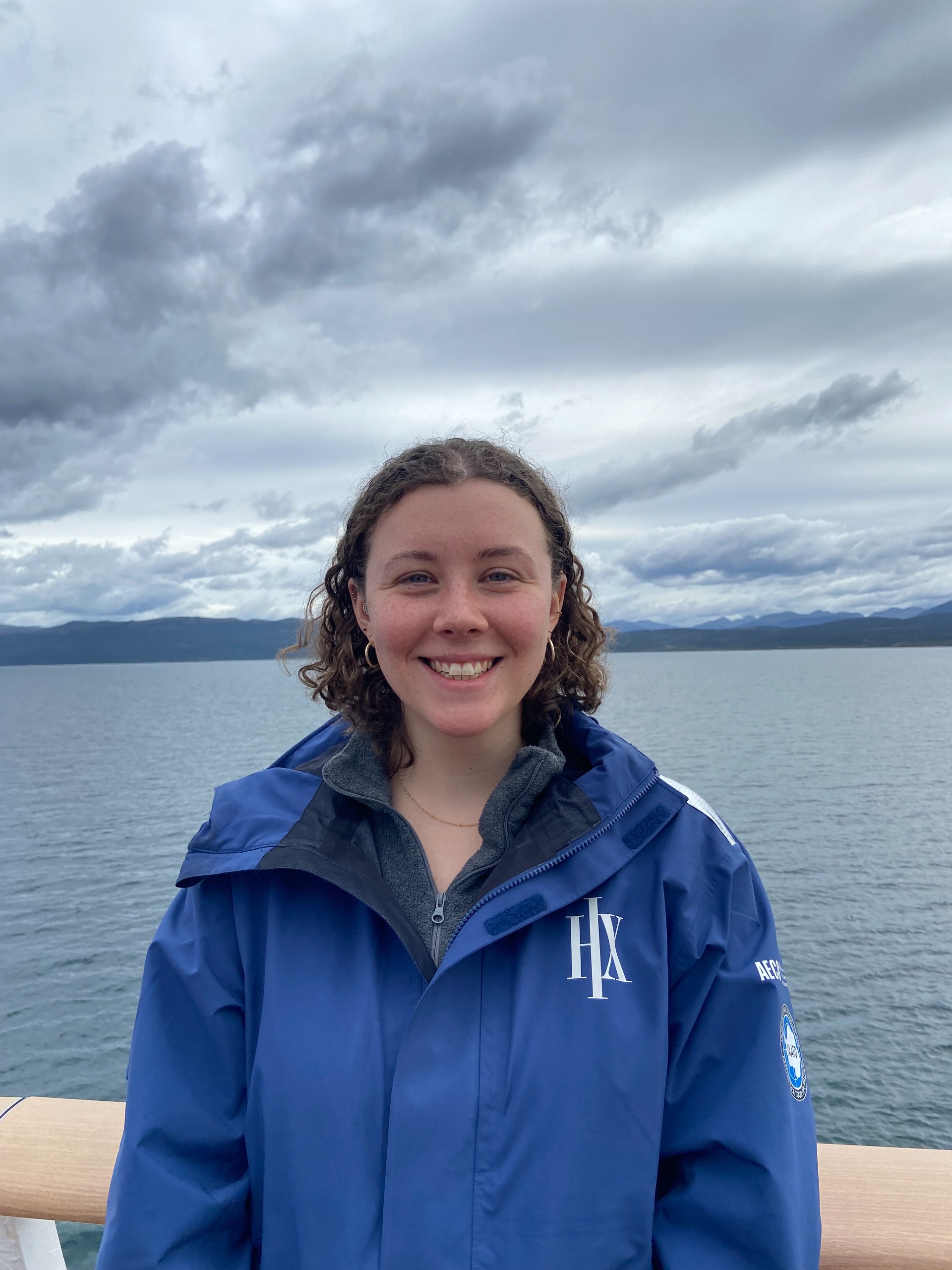
“My research interest is in understanding the processes that influence invertebrate biodiversity in aquatic systems. My PhD will explore how aquatic invertebrates, in marine and freshwater wetlands, respond to and recover from pulsed multiple stressors, such as a heatwave or chemical spill. I will investigate this using a combination of fieldwork, experimental and demographic modelling approaches. I am particularly interested and excited to use my research to develop species conservation and recovery programmes for at-risk invertebrates in the UK.”
PhD Student – Stefania Luca

“My research focuses on understanding how energy and material fluxes across terrestrial–aquatic boundaries shape wetland food webs, with particular interest in how anthropogenic stressors alter these dynamics. Wetlands are critical ecosystems where trophic subsidies, such as insect emergence, provide essential resources for higher trophic levels. However, multiple stressors—including land-use change—impact ecological systems and can have cascading consequences for biodiversity. By investigating how these factors interact, I aim to contribute to a deeper understanding of ecosystem resilience and the management strategies needed to protect wetland communities.”
(Owen, from AstraZeneca) will link the student into a multi-million dollar global programme of landscape restoration projects. The supervisor at York (Heinemeyer) is a UK peatland expert, with an established network of stakeholders across UK uplands and to policymakers. The US supervisor (Robertson, from Wisconsin-Madison) will provide the same for the USA. The student will combine development of field-based skills and experience in wetland ecology – across the US and the UK – with cutting-edge analytical
research into some of the most important emerging regulatory mechanisms for nature conservation in the world today: net environmental outcome policies. They will consequently need to have or develop skills in fieldwork, statistical analyses, spatial analysis, and restoration ecology.
PhD Student – Alexander Dhond
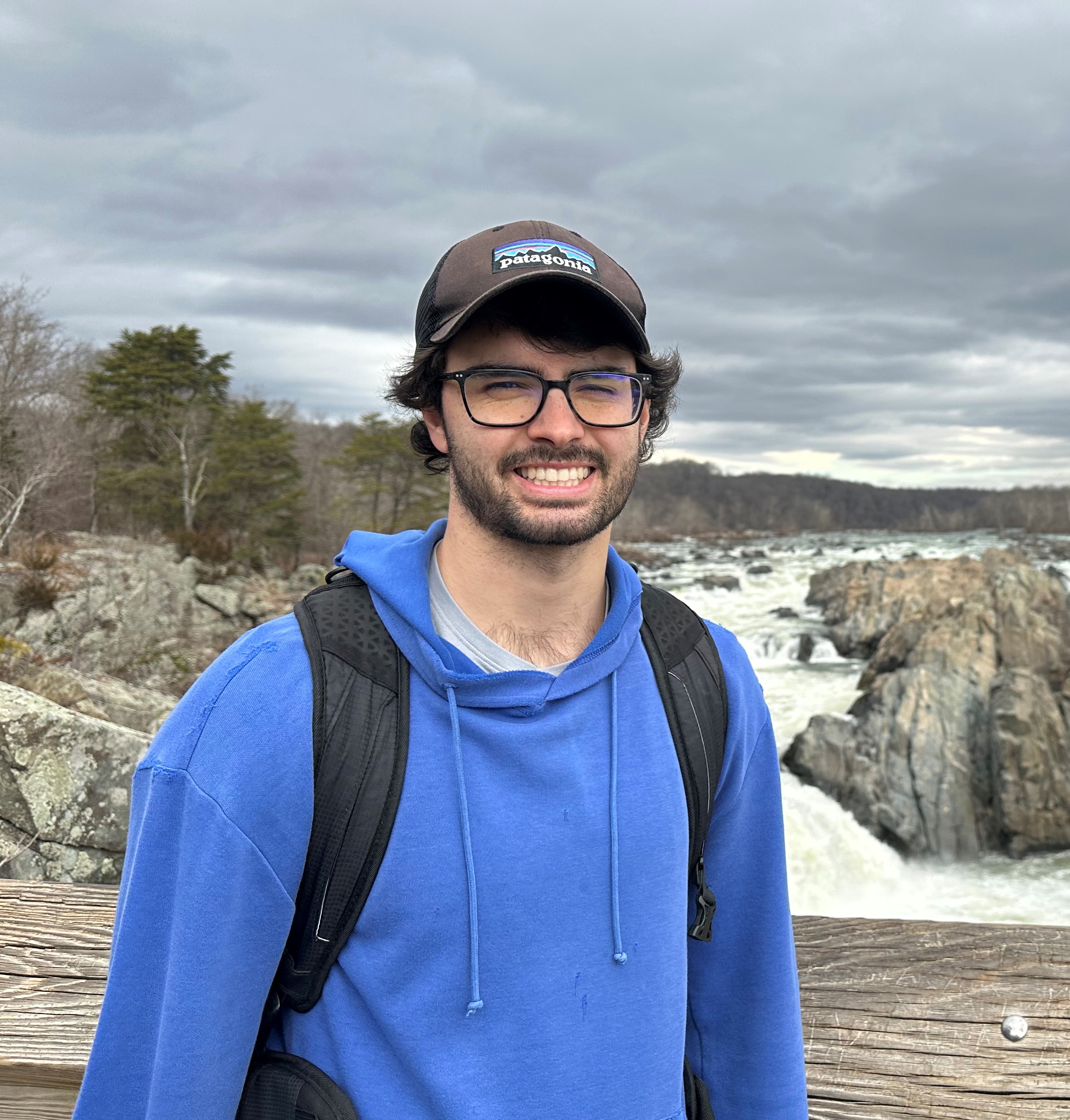
“I am interested in identifying the risks to and improving policies around biodiversity offsets, particularly those focusing on wetland conservation. My PhD will investigate stressors causing wetland loss in the US and UK, and how policies like No Net Loss, Biodiversity Net Gain, and Nutrient Neutrality can enhance wetland restoration. I hope to combine field data on wetland characteristics in the UK with data from US restoration projects to identify effective policy attributes linked to successful outcomes. I am hoping the results of this work will feed into stronger legislation that will help us protect our valuable wetland ecosystems.”
UK Centre for Ecology & Hydrology
PhD Student – Lizzie Cooke

“Hi! My name is Lizzie Cooke, and My PhD research focuses on understanding how per- and polyfluoroalkyl substances (PFAS), also known as “forever chemicals,” impact aquatic biodiversity under different climatic conditions. PFAS are highly persistent pollutants that can accumulate in ponds and ditches, where their effects on invertebrates may vary with temperature and other environmental stressors. Through a combination of fieldwork across Europe; from Mediterranean to Arctic regions, I will investigate how PFAS influence feeding, metabolism, growth, and reproduction in aquatic organisms such as Daphnia and algal biofilms.”
PhD Student – James Evans
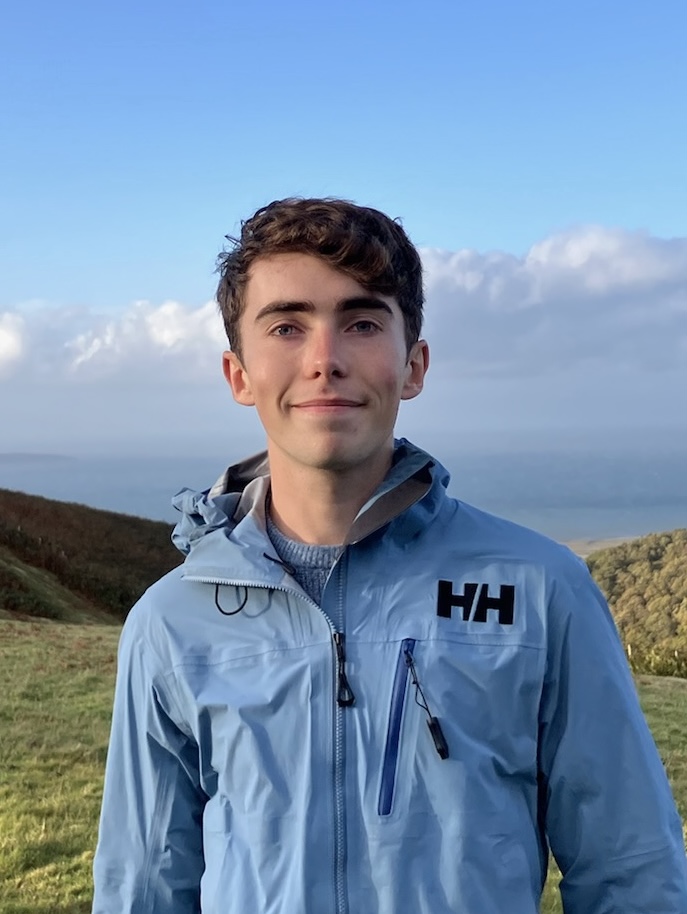
“I am interested in how chemical and climatic stressors affect microbial communities and functions in constructed wetlands. These nature-based systems provide low energy water treatment by replicating the key biogeochemical processes found in natural wetlands, many of which are driven by microorganisms. I hope the findings of this project will contribute to optimising constructed wetland systems to improve environmental and public health.”
in size. Although there are several schemes that encourage the creation or restoration of ponds, the location and number of ponds in the UK is unknown. There could be anywhere from 200,00 to over 3 million ponds- a massive variance. In order to better plan the management of ponds, more data is needed about the ponds we already have. Advancements in Unmanned Aerial Vehicles like drones have seen them being used in surveying and monitoring of habitats. By comparing drone imaging and satellite imaging, a review of the most efficient ways to map ponds in the UK can be reached, and hopefully, this will improve our UK pond data collection. Furthermore, there are other advancements in drone technology that can be used. Different cameras and sensors can record information from different wavelengths, and each of these could provide new insights into ponds. Ponds function more as ‘pondscapes’ than as individual habitats. Pondscapes are the network of ponds within a landscape. These pondscapes are important because most pond species use one of two key adaptations to make them resilient: dormancy or dispersal. For species to be able to disperse, there must be a functioning pondscape rather than an isolated individual pond. The student hopes that a model may be able to use the importance of pond proximity, along with other variables, to create a way for pond creators to determine the best places for them to create ponds on their land.
PhD Student – Nic Mortimer-Cook

“Wetlands are wonderfully biodiverse habitats and I’m really excited to be working on ponds. I come from a background of biodiversity and ecology and am keen to work on such a multi-disciplinary project. Technology is always evolving, and with so much to monitor and manage, using every tool we can to make helping the environment easier is a big win.”
PhD Student – Gabriella Goodridge

“Hello, I’m Gabriella and I’m thrilled to be a part of the ECOWILD and York University communities! I’m passionate about sand dune and salt marsh conservation as I come from a coastal background, and have volunteered with the Lancashire Wildlife Trust and Fylde Sand Dunes Project since 2018. My PhD will examine the effects of multiple stressors, including climate change, sea level rise and eutrophication on saline and freshwater wetlands and observe any alterations in their interactions with each other. This project is interdisciplinary, combining soil science, hydrology, ecology and paleoclimatology to answer my research questions. I’m incredibly eager about this topic and if you have any questions about my research, please feel free to get in touch.”
Professional Development
In addition to specialised training, ECOWILD students will attend careers events and established workshops, including for data management, time management, leadership, writing skills and viva preparation, aligning with the Vitae Research Development Framework.
